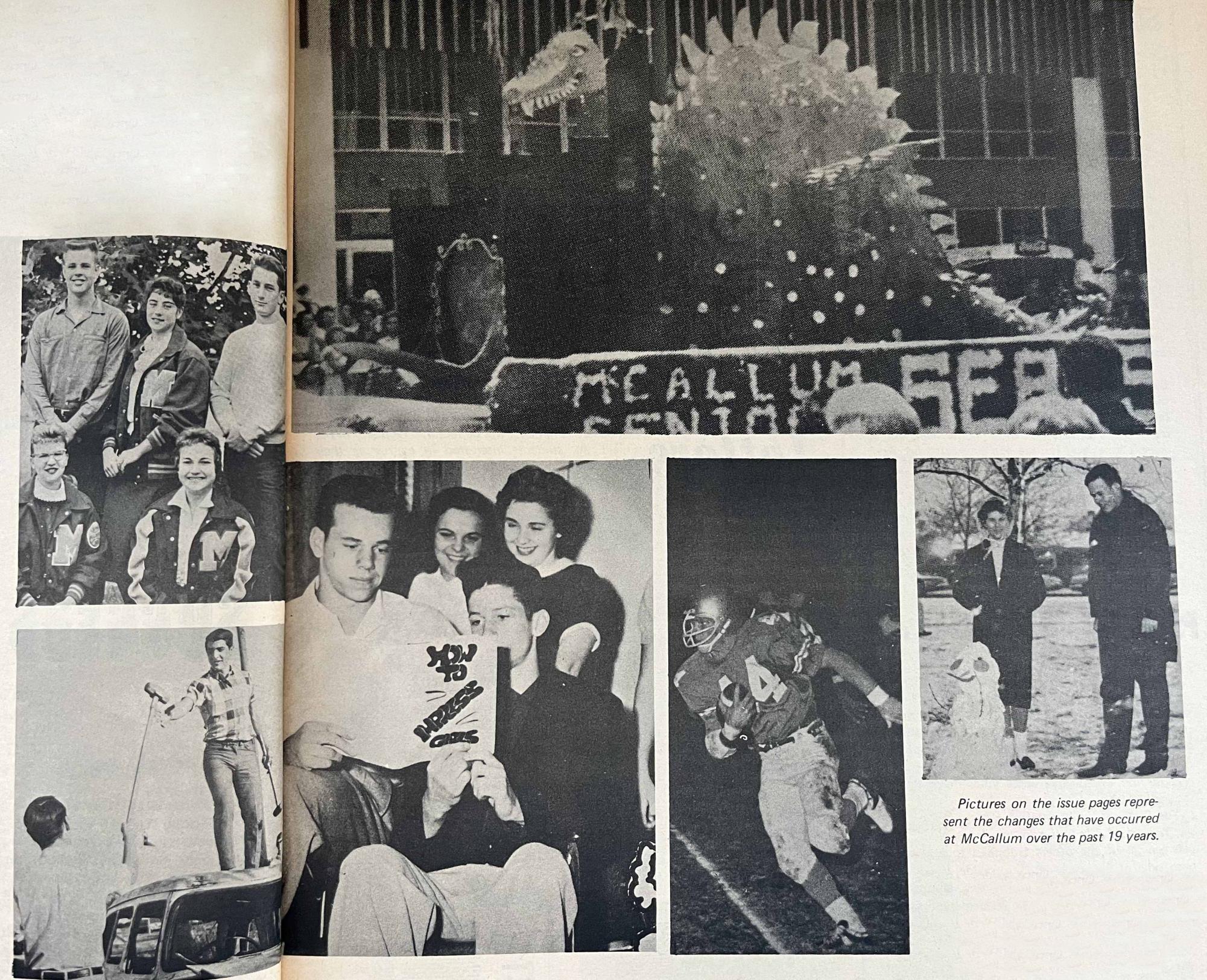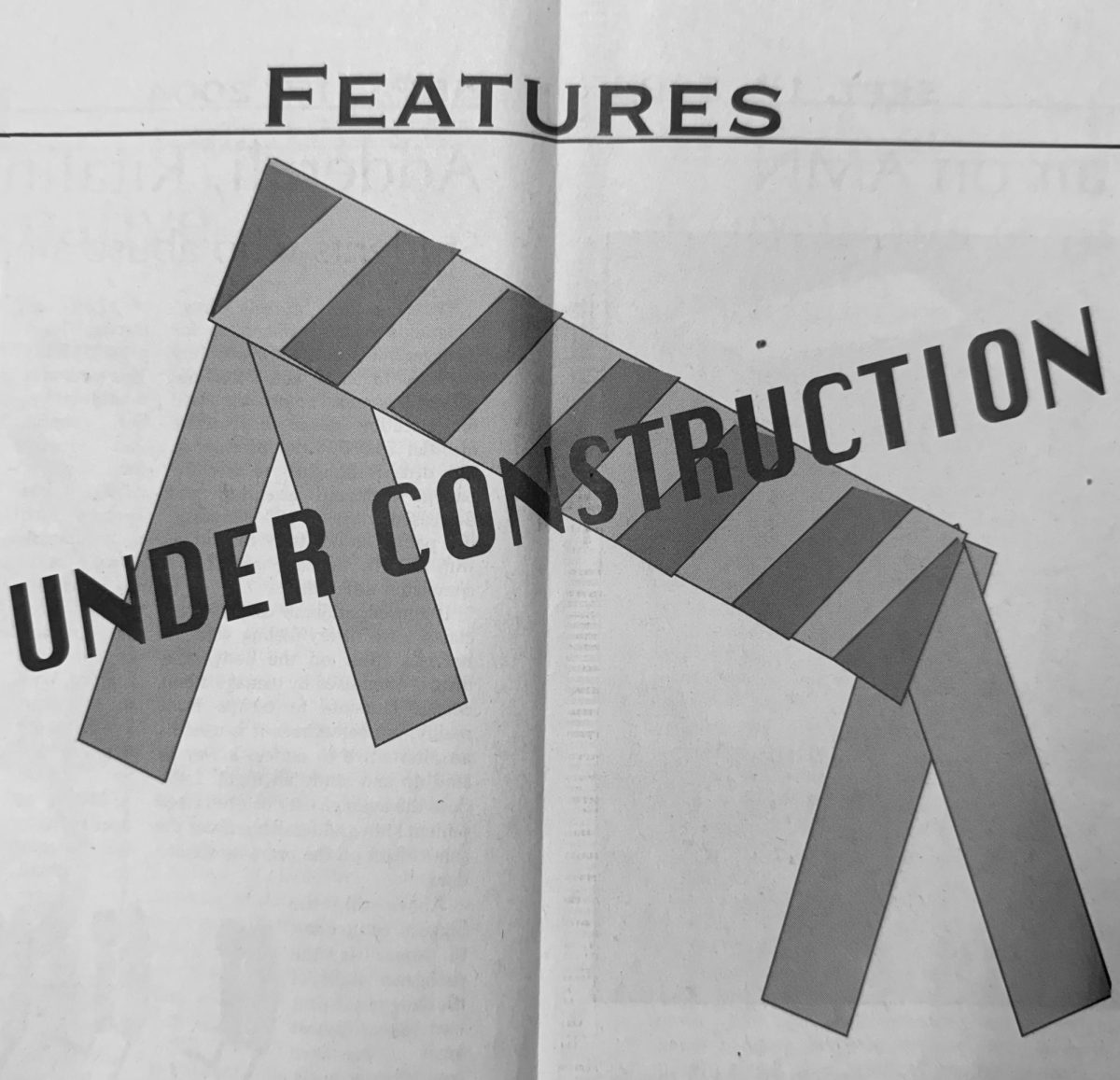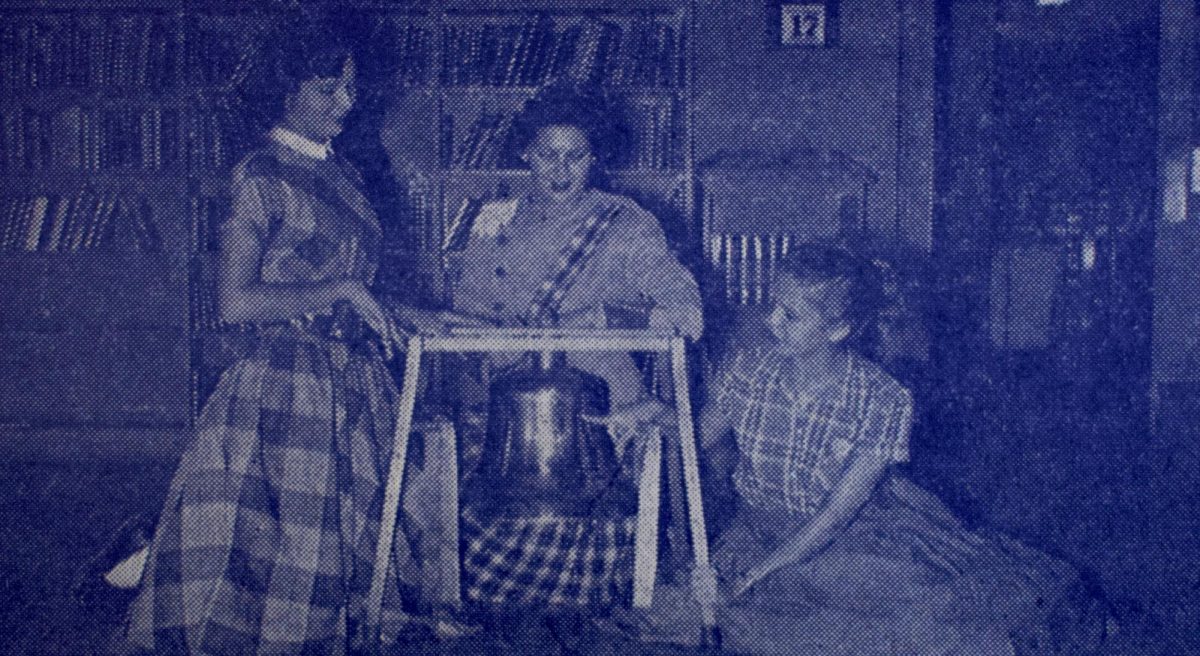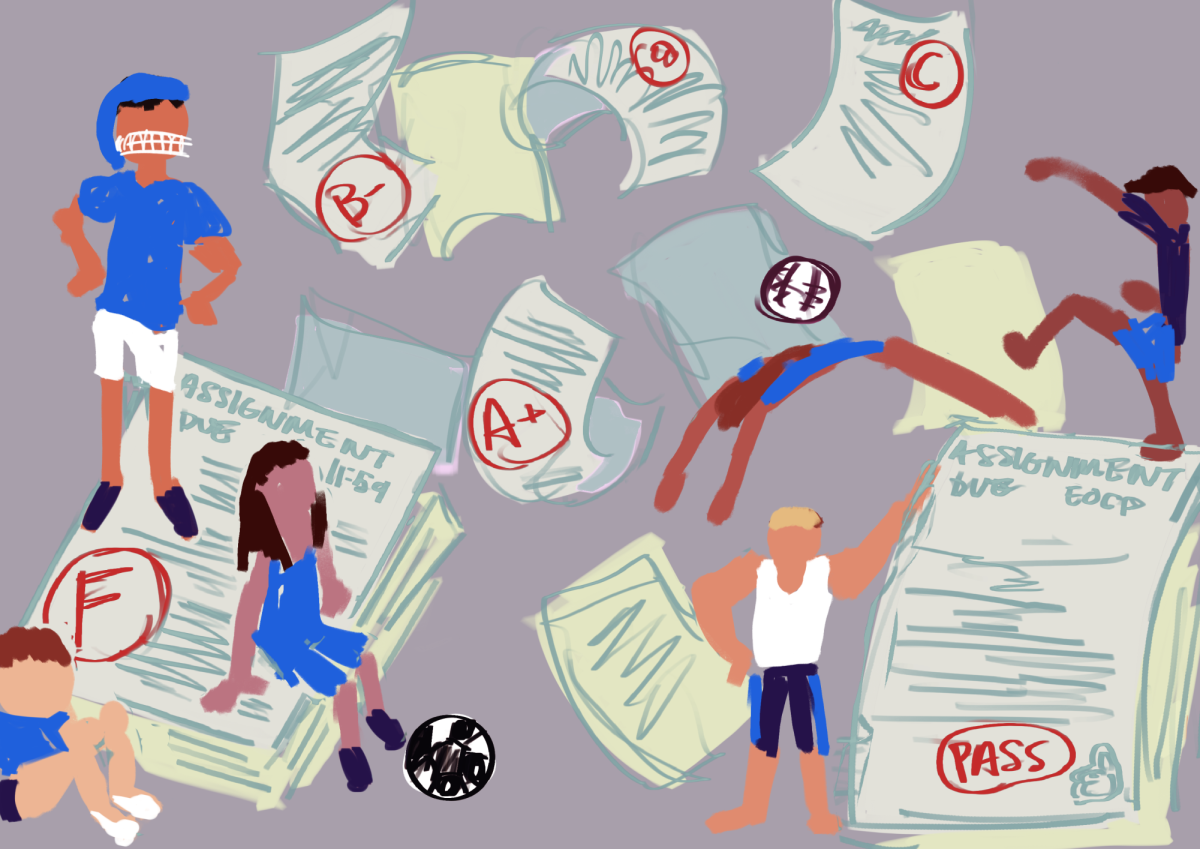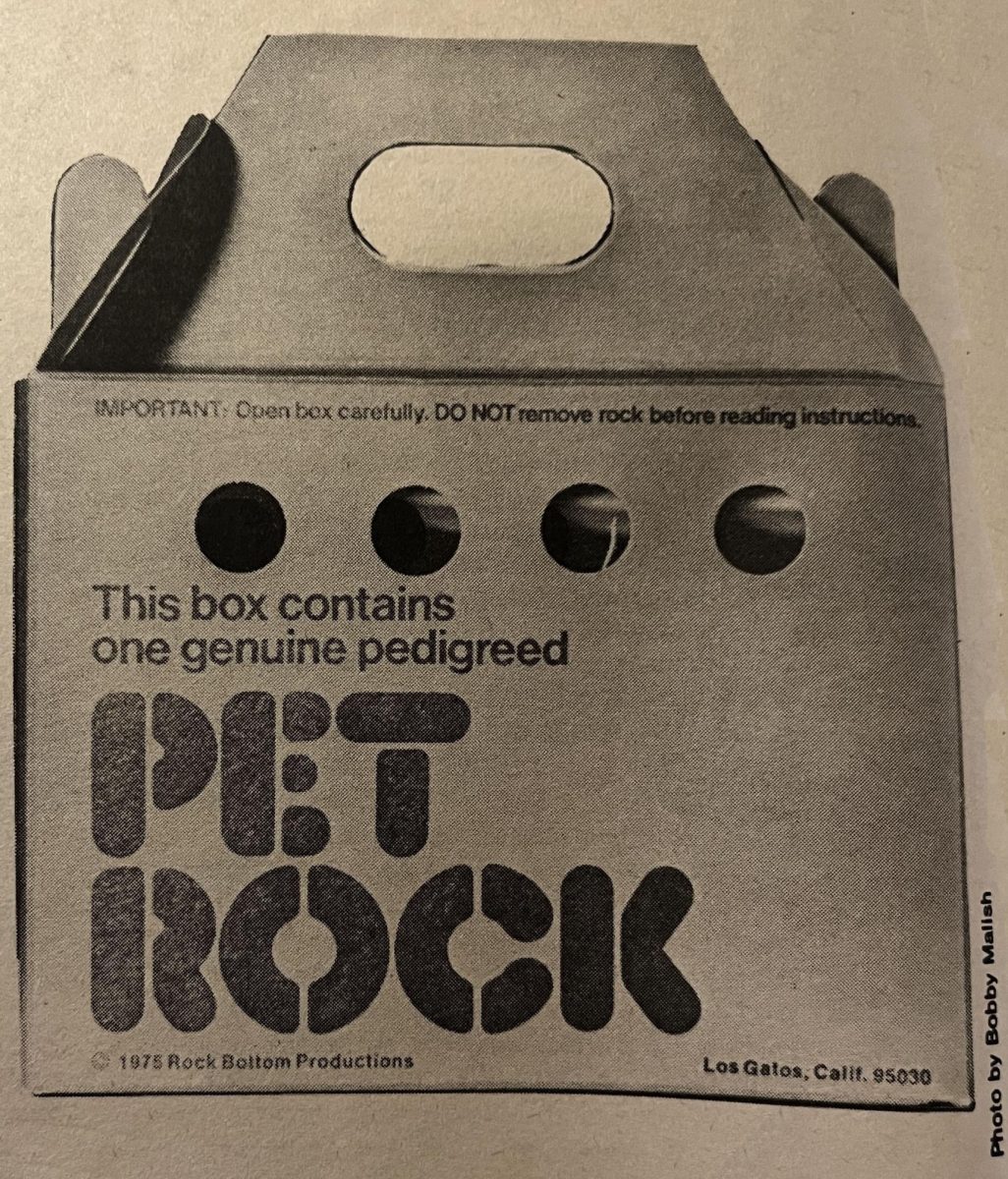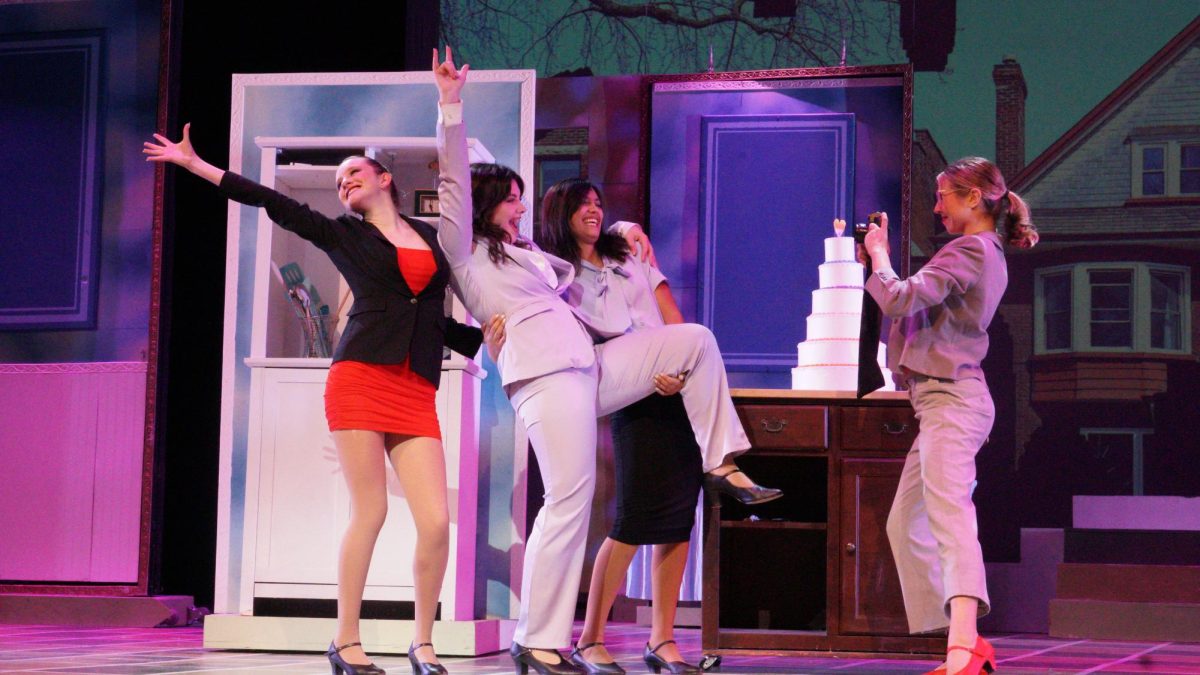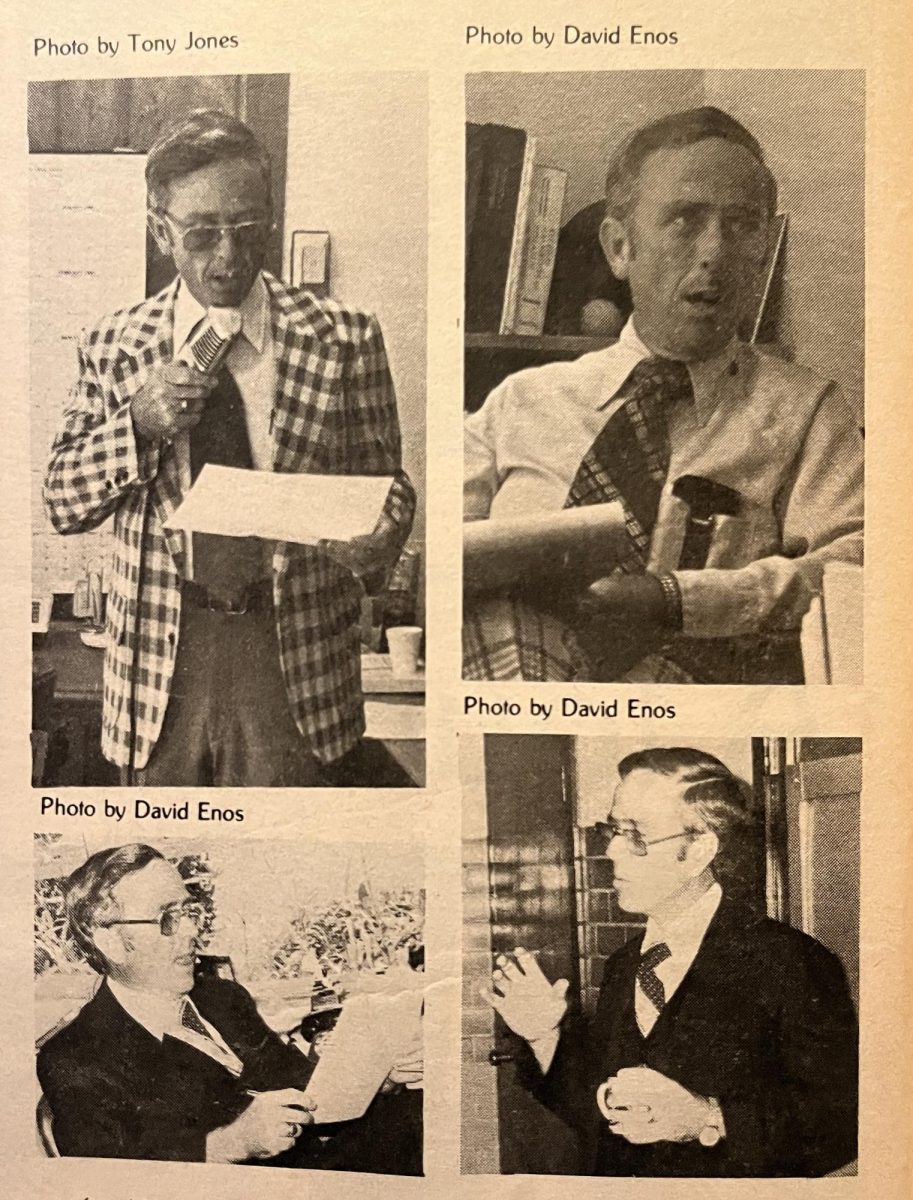Twenty years ago, 1,331 students filed into their bright new shiny playpen called McCallum High School. By the time the first 150 had graduated, the school had earned a rightful place with the people of Austin.
It isn’t the school we know today. Sunshine Drive wasn’t paved, and there was no lawn until the students planted one. Every day the advisories went outside and picked up rocks, and every advisory and club planted a tree. There was a lot of spirit though, as shown by impromptu pep rallies in the halls.
Over the next 20 years, Mac’s accomplishments remained as successful as they were in year one. For the first time against her crosstown rival, she secured a prize along with a 21-20 victory. A bright new shining bell and so started the homecoming tradition of both schools.
Press capades brought both the publications staff and the Royal Court Players (RCP) together in the early years by putting on little one-act plays. In 1954 RCP put on her first major production of Annie Get Your Gun. By this time McCallum had separated into solely a high school, with the building of Lamar Junior High. With this change Mac also moved from District 5AAA to 13AAAA, only to meet up and lose against her northside rival Austin, 21-7.
Other organizations soon began to spring up. Future Homemakers of America (FHA) petition was accepted and became one of the most active, as well as one of the first clubs at McCallum. Future Teachers of America (FTA) boomed into existence, and in the late ’50s became one of the largest chapters in Texas.
Blue Brigade marched to the time of the newly formed band in supporting the Knights. Their long plaid skirts and bobby socks did not look like much for marching but were in the old Scottish tradition. Some organizations did not quite make it with the changing times. Among these were the Barbershop Singers, Violet Crown Garden Club, and the Ballroom Dancing Club. All of them went out with zoot suits. Petticoats, 18-cent hamburgers and hula hoops are only memories of Mac’s early era.
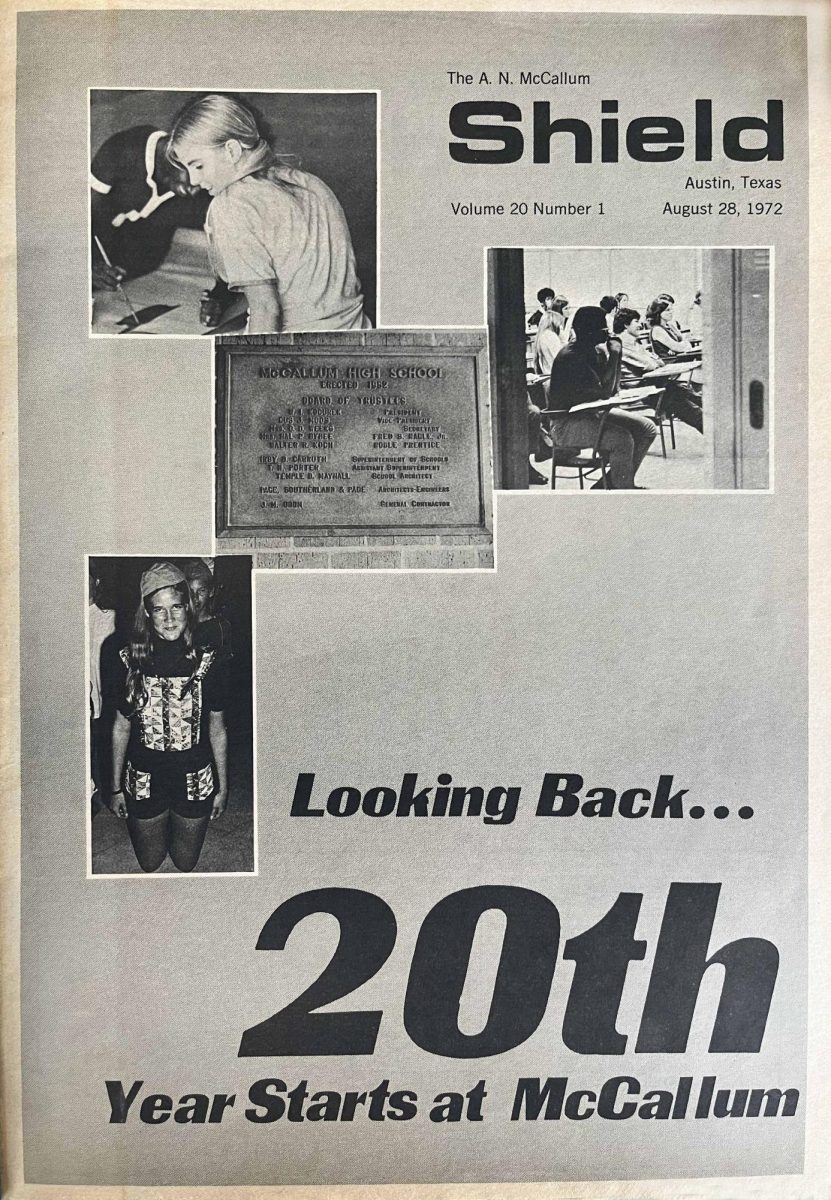
Grover Street Draggers evolved from the Sports Car Club of the ’50s. Along with cars came the problem of parking, which started when the school first opened. Sunshine Drive was paved, and controversial Veterans Field was built, and the bell kept going back and forth across the Colorado. In 1958, with the addition of Alaska and Hawaii, McCallum had its own additions. Corridor A and the addition of two so-called “temporary” buildings came upon the scene.
McCallum and the city received her first exchange student. Iris Kolla of Greece was surprised when she saw the United States and Texas for the first time back in 1966. American customs and people were different from what she was used to, but the exchange was successful enough to be continued from then on.
One of Mac’s big sports moments came in the fall of 1966. Nothing could go wrong with the Knight football team and they rolled over newcomer Reagan High 23-0. Mac at the same time became the first school in Austin since 1957 to go undefeated in season play. Along with football victories came Tom Kite, who helped put Mac’s golf team as one of the tops in the state.
In 1968, a business had opened, which soon became an institution. Knight-A-Burger opened its door to those who did not appreciate the wholesome food of the cafeteria, pay assemblies, and study halls.
As Mac neared the end of its second decade, its achievements became even more impressive. Columbia University awarded the Shield news magazine the top rating in the country. Coach Bennett’s golf team took first in its district.
The world had its glories, too. Man took his first steps on the moon. The University of Texas won its second national championship in spite of teams like Arkansas and Notre Dame.
Students soon started asking for a more active role in the policy-making of their school. With this the PTSA came into existence, and the student council became a more open form for student opinion. Ideas about the pass-fail grading system and the abolition of the dress code came to the interest of the students. Earth Day showed the world that the students had changed into concerned citizens of their community.
Concern for the problems facing America brought a new tool and privilege from the older generation; the vote. Papers like the Shield took surveys on student opinion and showed they were willing to take an active part in the political institutions of our nation.
From 1953 to the present, the student body has changed along with the school.
In 20 years a new citizen has evolved, and it is us, the students.
This article was published in The Shield on August 28, 1972.

